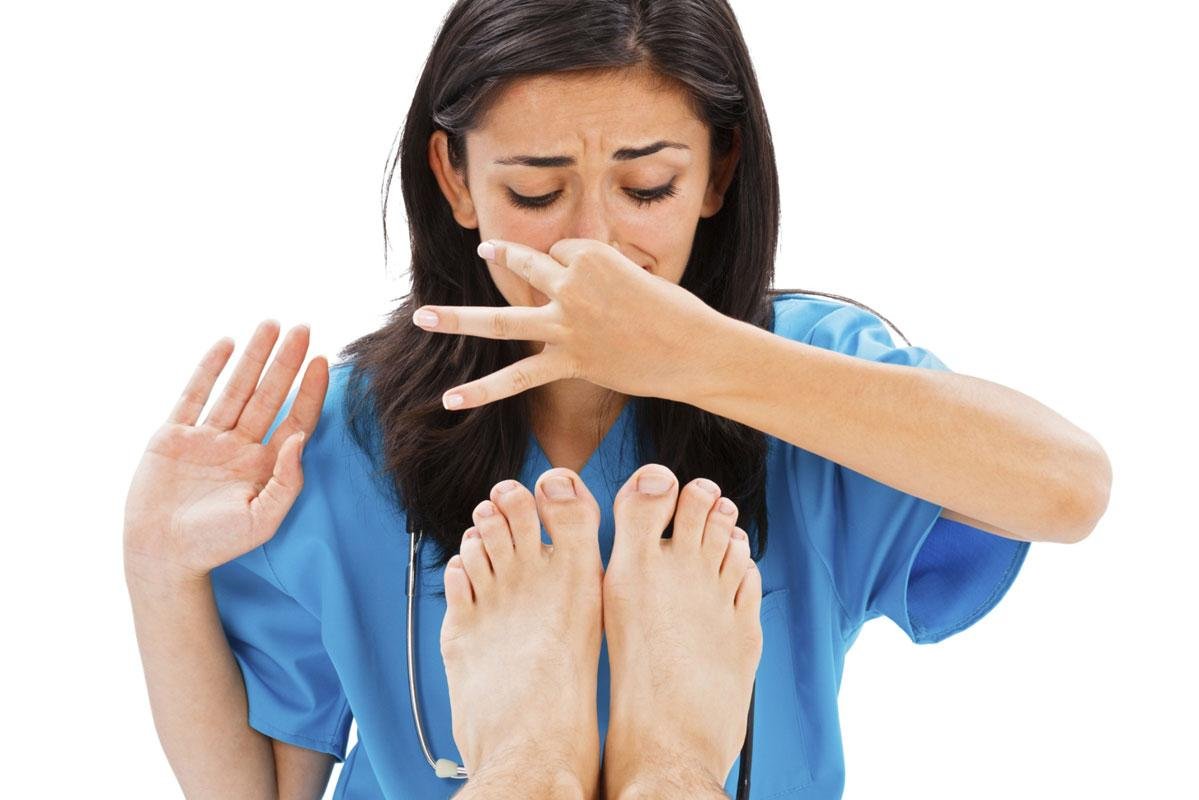Understanding Smelly Feet & Mysteries Behind
Exploring the Origins of Unpleasant Foot Odor
If you have ever encountered the less-than-pleasant scent upon removing your shoes, you’re not alone. Smelly feet, scientifically known as bromodosis, is a prevalent issue. Let’s delve deeper into the factors contributing to malodorous feet and explore effective measures for prevention.
RESOURCED ARTICLE What to Know About Smelly Feet

Root Causes of Stinky Feet:
The primary culprit behind unpleasant foot odor is trapped sweat. With thousands of sweat glands, your feet generate a significant amount of sweat daily. However, when this sweat becomes confined within shoes or socks, it creates an environment conducive to the development of a foul odor, commonly referred to as bromodosis.
Bacteria play a vital role in causing smelly feet. Various types of bacteria reside on the soles of your feet, thriving on the constant production of sweat. As these bacteria feed on sweat, they produce acids, contributing to foot odor. Additionally, fungus, particularly the one responsible for athlete’s foot, can thrive in the warm, moist environment created by sweaty feet inside shoes and socks.
Other contributing factors to stinky feet include:
- Poor hygiene
- Wearing the same shoes daily or not changing them regularly
- Certain diseases
Understanding Sweaty Feet:
Contrary to popular belief, bromodosis is not exclusive to hot weather. Feet sweat consistently every day, making stinky feet a year-round concern. Approximately 10% to 15% of individuals may experience smellier-than-average feet due to hosting specific bacteria called Kyetococcus sedentarius. These bacteria produce sulfuric compounds, imparting a rotten egg-like smell to the sweat.

Certain demographics, such as women and teens undergoing hormonal changes, may be more susceptible to sweaty feet. Conditions like hyperhidrosis, characterized by excessive sweating, can also contribute to foot odor.
Factors like wearing ill-fitting shoes, prolonged standing, and high-stress levels can exacerbate foot sweating and odor.
Effective Strategies for Treating Foot Odor:
Managing smelly feet is often achievable through simple home remedies. Consider the following steps to reduce foot sweat and combat odor:
- Foot Soaks: Soaking your feet can provide a deep clean. A mixture of Epsom salt in warm water or a blend of warm water with white or apple cider vinegar can be effective. Soak your feet for up to 20 minutes once a week to reduce moisture and discourage bacterial growth.
- Keep Feet Dry: Since bacteria thrive in moist environments, keeping your feet dry is crucial. Talcum powder can be applied to absorb wetness, and antiperspirant can be used on the soles to minimize sweating. Allow your feet to breathe by going barefoot at home or opting for sandals when possible.
- Practice Good Hygiene: Washing your feet daily, especially between the toes, is essential. Regularly trimming toenails, cleaning them, and removing dead skin can reduce bacterial havens on your feet.

4.Footwear Maintenance: Avoid wearing the same shoes consecutively to allow for proper ventilation. Washing insoles, using disinfectant sprays, and letting shoes air dry can help eliminate bacteria residing in footwear.
READ MORE INTERESTING ARTICLE Penile Fractures Alert, Christmas Holiday Intimacy Brings Unforeseen Risks
Incorporating these practices into your routine effectively addresses and prevents the issue of smelly feet, promoting overall foot health and hygiene. By taking proactive measures, you can confidently step out without worrying about unwelcome foot odor.